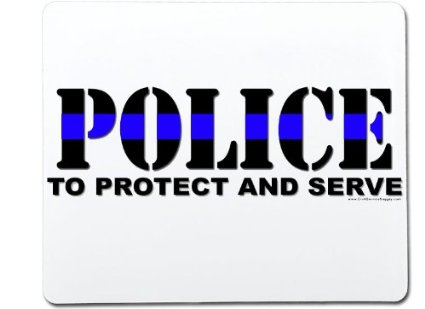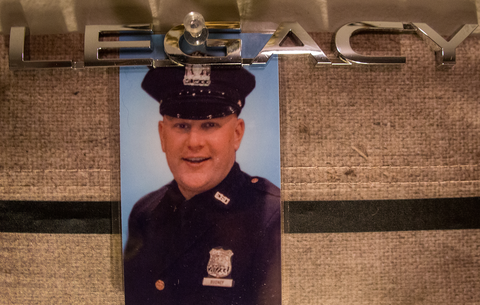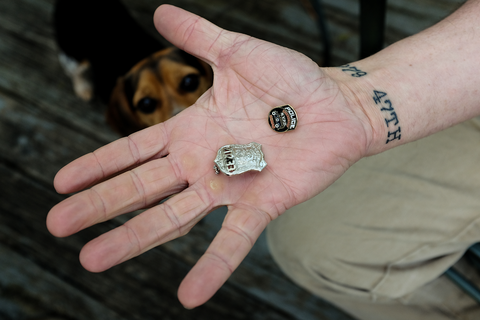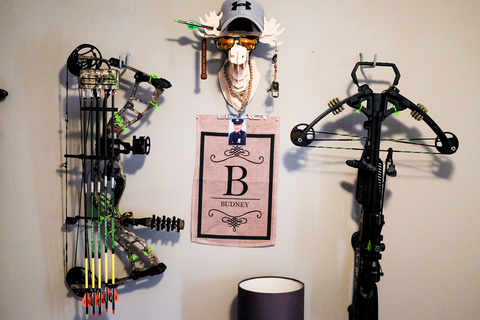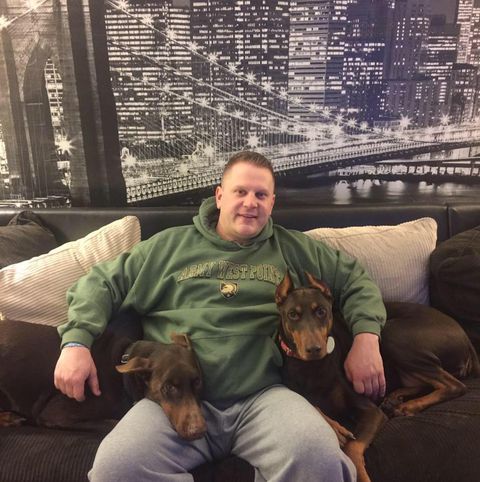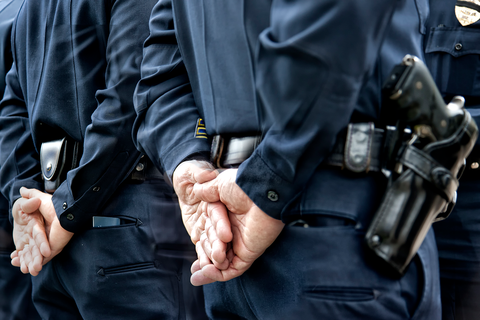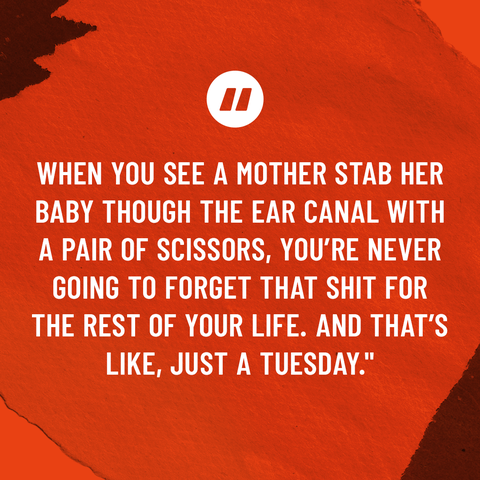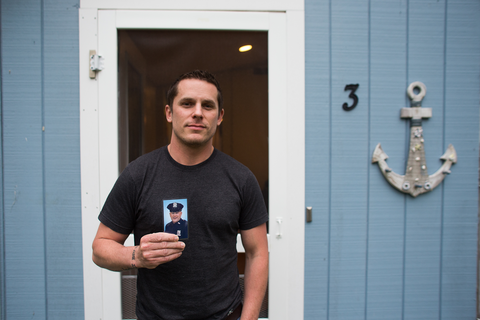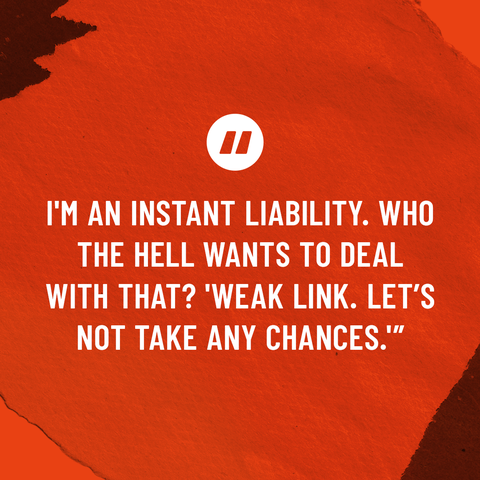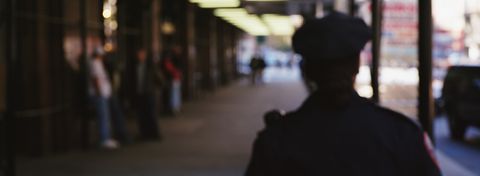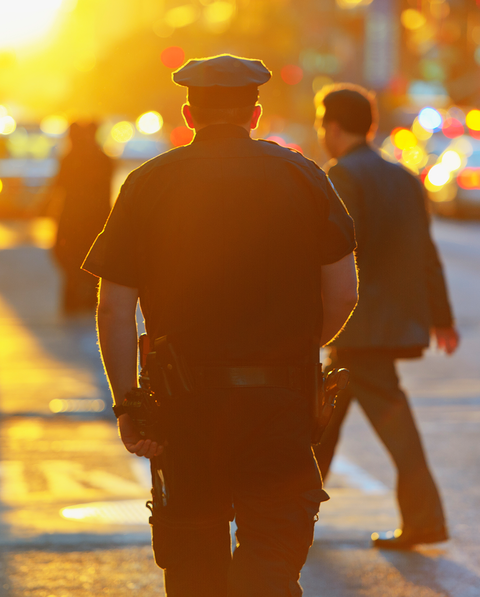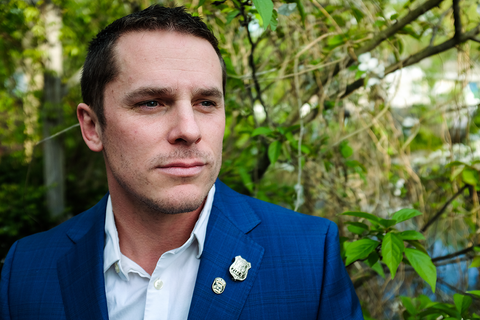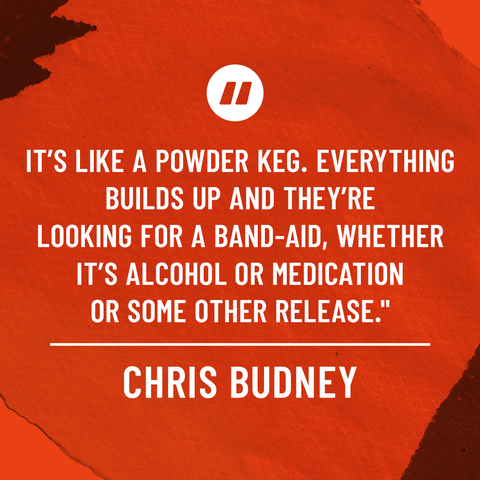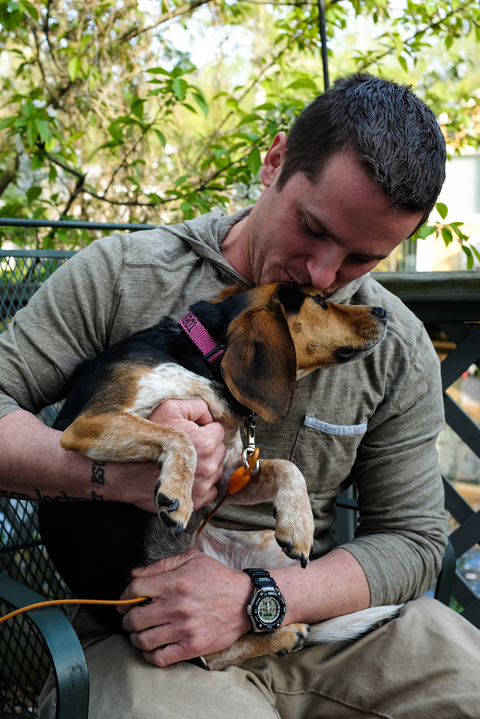Cops Are Dying By Suicide — and No One Is Talking About It
In January 2018, NYPD Officer Nick Budney fatally shot himself outside a crowded restaurant. Budney’s death is the latest in an troubling epidemic of cop suicides. Here’s why more cops aren’t getting the help needed to save their lives.
When Nicholas Budney was a kid playing cops and robbers in his family’s backyard in Cold Spring, New York, he knew one thing for certain: he was going to be the cop. His brother, Chris, happily played the robber. When the two boys got older, only one of them grew out of it: Chris became a chef and personal trainer, while Nick became a cop.
Budney spent his entire career in the 47th precinct, a sprawling, rough section of the Bronx on the Northern border of the city. In his 14 years on the force, Budney was named the 47th’s officer of the year four times, carving out a role on the local branch of the NYPD’s elite Emergency Services Unit. In the NYPD, ESU officers serve as a combination of SWAT team, first responders, and search and rescue personnel: when something goes wrong that beat cops aren’t equipped to respond to, such as a major car crash, an armed suspect, or a potential suicide, the ESU is who shows up.
“I asked him one time, ‘Why don’t you go down to Long Island, to one of the suburban areas?’” Chris told MensHealth.com, referring to precincts or police departments that didn’t have crime rate and call loads of the Bronx. “He said, ‘I’ll never leave my guys. I’m staying here until I’m finished.”
In 2013, Budney married his long-time sweetheart Shannon Sheehan. He commuted more than an hour from his home to the 47th every day. The two brothers would cook together, and Budney would spend hours riding around his backyard on his tractor, cowboy hat on, listening to country music. When they could, they hunted — not with rifles, but with compound bows and crossbows.
On January 7th, 2018, the family — Shannon, Chris, parents Doug and Margaret, sister Heather and her two kids — got together for Budney’s 36th birthday. Budney was happy, smiling, having a blast. He’d just bought a massive camper van, and he spent the evening telling his family and friends about it.
That was the last night Chris saw him alive.
On January 27th, Budney walked in to Billy Joe’s Ribworks, an expansive barbecue joint in Cold Spring, NY, right on the west bank of the Hudson river. It was a Friday night, and Billy Joe’s was busy, with live music bumping from an in-house DJ set. It’s unclear how long Budney spent at the restaurant, but at some point after night fell, he walked off the outdoor patio and down to the river. He sat down and looked out over the water, out of view of the revelers on Billy Joe’s patio. There, he shot himself.
Budney’s death, to this day, is baffling to his family and friends. Budney loved his job. He loved his family. He didn’t exhibit any of the traditional signs of depression, including anger, sadness, or a loss of interest in favorite activities. Chris said that his brother’s friends on the force told him that, of everyone in the 47th, Nick would have been one of the last ones they’d think would die of suicide. (A spokesperson at the 47th precinct referred press questions to NYPD headquarters, which did not return repeated requests for comment.)
It’s unknown why Nick Budney took his life. It’s unknown if he reached out for help within his department. But what is known is that without help, officers like Nick Budney die. Right now, the mental health resources available to cops aren’t enough to overcome the forces stacked up against them — not just in the NYPD, but in law enforcement agencies across the country.
Several current and former law enforcement officers nationwide told MensHealth.com (many under the condition of anonymity, for fear of reprisal within their departments) that reaching out for help can be a loaded process. Many are haunted by the pervasive fear that undergoing treatment will have professional repercussions, such as them being passed over for promotions or removed from patrol work on the street.
Every day, police officers around the country witness scenes of violence, trauma, and tragedy incomprehensible to most citizens. For this reason, almost every police department screens potential applicants with exhaustive personality tests — hours of interviews, hundreds of questions, and extensive background checks — to weed out those who are susceptible to mental illness or otherwise unfit for the job.
But despite departments’ efforts to hire mentally healthy candidates, enlisted officers still kill themselves at the same rate as the general population. In 2016, 108 cops across the country took their own lives, according to Badge of Life, a nonprofit organization that tracks police suicides; according to a 2018 study from the Ruderman Family Foundation, the number of police officers who died by suicide was more than triple that of officers who were fatally shot in the line of duty.
“There is not enough conversation about mental health within police and fire departments,” the study claims. “Silence can be deadly, because it is interpreted as a lack of acceptance and thus morphs into a barrier that prevents first responders from accessing potentially life-saving mental health services.”
These numbers tend to be even more staggering in cities like Chicago, where chronic gun violence and a murder rate in the hundreds per year means cops see a staggering amount of trauma. A Department of Justice report found that the suicide rate in the Chicago Police Department is 60 percent higher than the national average. To make matters worse, these numbers don’t include retired officers who take their own lives, a statistic that’s even more difficult to track.
A few years back, Hernandez said, he was at his desk counting the names of cops he’d known in his 35-year career who had committed suicide, either while they were on the force or after retirement. He came up with 14 names.
“If we had 14 officers killed [in the line of duty] over the last 35 years, that’d be tragic,” Hernandez said. “We’d be like ‘What the heck? We need more money for bullet proof vests, we need more technology.’ But yet, 14 suicides doesn’t have that impact.”
The reason for the relatively high rate of law enforcement suicides is perhaps unsurprising to those outside the field: despite most departments screening extensively for applicants with mental health issues, the constant, unrelenting grind of traumatic situations can affect even the toughest officers. “What really wears the officers down today is the everyday calls,” Hernandez told MensHealth.com. “The accident where they see two or three dead coming from home from church. The drowned baby that they had to give CPR.”
A current sheriff’s deputy in a Florida police department concurred. “When you see a mother stab her baby though the ear canal with a pair of scissors, and under the jaw with a butcher knife, and you walk into that scene and there’s blood all over and you have small children, you’re never going to forget that shit for the rest of your life. Ever,” he said. “And that’s like, just a Tuesday. Some of the stuff you see out here — it’s just unbelievable horrors.”
After years on ESU Truck Three, Budney was intimately aware of these horrors. But on the outside, Chris says, he didn’t let on much. But that was just Nick. Ever since he was a kid, he kept his own counsel.
“He kind of kept his feelings sheltered, to protect other people,” Chris said. “In a sense, he felt like he always had to camouflage it and make sure everyone else around him was having a good time.”
That instinct — to keep feelings hidden, to suck it up and find another outlet after bearing witness to unspeakable things — is common among cops. In itself, it’s a product of centuries of police culture, where perceived weakness of any kind is stigmatized. Cops know their brothers have their back, no matter what, but they still don’t want to be seen as the one who’s vulnerable.
Even in the best-equipped departments, seeking help usually requires an officer to reach out themselves. But “if you have to self identify that you have a problem, you immediately put a label on yourself,” said Maria Haberfeld, PhD, the co-director of the City University of New York’s NYPD police studies program.
Officers say that label can carry a lot of weight. Police departments are fraternal, but they’re also competitive and demanding. “People have this underlying nervousness that [coming forward with a mental health issue] is going to be used against them,” the Florida sheriff’s deputy said.
Police culture places an enormous value on strength and resilience, especially in high-stakes situations, and the stigma of mental health issues means officers who seek treatment fear they’d be seen as a liability by their peers.
“Maybe I say, ‘yeah, I’m going to get some mental help,’ and somebody sees me go into the [therapist’s] office, and they figure it out or tell somebody else,” the deputy said. “Maybe I’m going for a job in another department and, through the grapevine, they hear I’m seeing a shrink. I’m an instant liability. Who the hell wants to deal with that? ‘Weak link. Let’s not take any chances.’”
There’s also the chance that even after he does come forward, an officer won’t get the help he needs. In 2015, Jose Benitez, a nine-year veteran of the NYPD, hung himself five months after being diagnosed with bipolar disorder. According to the New York Daily News, after several hospitalizations, Benitez was assigned to monitor security cameras at a housing development on an overnight shift. A lawsuit filed by his estate alleges that even though the department knew Benitez was bipolar, the punishing hours of the overnight shift exacerbated his symptoms.
Cops also fear that seeking mental health treatment will take them off the street. Several officers said that seeking treatment would cause them to lose their weapons. “You don’t know who’s going to be the arbiter of deeming if you can or can’t carry a weapon,” the Florida deputy said. “And if you can’t carry a weapon, you can’t do your job.”
The circumstances under which an officer can lose their weapon vary by department, says Haberfeld: “There is no general rule on this.” But the NYPD’s nearly 2000-page patrol guide, for instance, states that any cop with a rank of Captain or above or “other competent authority” can temporarily remove an officer’s ability to carry a weapon and assign them to “non-enforcement duties” if they believe the officer’s access to firearms should be restricted for non-disciplinary reasons, such as family stress or suicidal ideation. (MensHealth.com repeatedly reached out out to the NYPD to clarify departmental procedure. Although a public affairs officer confirmed the department had received the questions, they offered no response.)
Robert Nevarez, the FPD Deputy Chief, described similar procedures in his department. He explained that an officer simply going in for counseling services or seeing a therapist would not be grounds for taking an officer off the street.
“What we need to see to take someone’s gun and badge is behavior that causes us to question their ability to perform their job,” Nevarez said. “If somebody’s saying ‘I’m really depressed, I’m not getting any sleep,’ that would not cause me to take somebody’s gun and badge. But if someone says ‘I’m so sad that I took my gun and pointed it at my head and thought about pulling the trigger,’” then he would take action.
In truth, a police department is in a difficult position if an officer is in the throes of a serious mental health crisis: it can’t allow an officer to retain their firearm, because it would be held liable if the officer harms themselves or others with the weapon. For beat cops and detectives, the backbone of any police force, getting taken off of the street can feel like being benched — or, worse, being punished.
The fear of losing the freedom of patrolling and everyday police work is so strong that some officers go to extreme lengths to cover up their treatment. John Petrullo is the director of POPPA, a nonprofit organization that provides a 24-hour confidential cop-to-cop mental health hotline for NYPD officers. (POPPA operates separately from the NYPD.)
Petrullo told MensHealth.com that some officers pay for therapy out of pocket, believing that using their department health insurance will mar their personal record. Petrullo said this is a myth, and that doctor-patient confidentiality and HIPPA laws would prevent the department from knowing how officers were using their insurance. But the stigma persists nonetheless.
POPPA is one of three resources that the NYPD encourages officers struggling with mental health to contact, the others being a similar, in-house counseling service called the early intervention service and the police chaplain (some of whom may be certified for mental health treatment).
The problem, however, is that reaching out to many of these resources requires a leap of faith that confidentiality will be maintained. The NYPD’s “R U OK” website, for instance, which was set up to direct officers to these resources, claims that all three are confidential, except in cases where someone demonstrates a liability to harm themselves or others. But the NYPD did not respond to questions clarifying the circumstances in which that confidentiality could be broken.
“The funny thing about being a cop is that your trust levels almost completely disappear,” the Florida deputy said. “Whenever someone’s telling you something, you automatically assume that they’re full of it. Whether it’s true or not, that’s how you’re approaching almost everything. A lot of cops feel that mental health help is almost like a trap. They’re afraid of anyone finding out, afraid of it being used against them, and they’d rather just suck it up in their own way and deal with the consequences.”
The battle is finding a way for officers to get help from a source that they trust: preferably, a long-time veteran of the street like Hernandez, someone who’s not in management. Petrullo, for instance, said that the fact that POPPA isn’t officially a part of the NYPD helps reassure cops that reaching out won’t make its way back up their chain of command. Yet, even with these resources available, officers still aren’t getting help.
Instead, many officers have a long history of self medication. A 2010 study found that 11 percent of male officers and 16 percent of female cops were drinking at levels the National Institute on Alcohol Abuse and Alcoholism considers “at risk.” Similar drinking habits are often associated with exposure to trauma.
“When I came on the job in the mid-80s, it was very much accepted to drink alcohol,” Nevarez said. “When you went through a traumatic experience, you don’t reach out for help. You reach for a bottle.”
“It’s like a powder keg,” Chris said. “Everything builds up and they’re looking for a band-aid, whether it’s alcohol or medication or some other release, and they don’t know which direction to go. That’s not just cops, that’s anyone in a high stress situation.”
Chris says Nick did not have a drinking problem. Instead, he favored healthier outlets for stress management: gardening, fishing, cooking. The brothers had plans to buy a pontoon boat together, after Budney dinged the propeller on their last boat by hitting a rock out on the lake.
Cops like Budney enter the profession out of a desire to help or protect other people. But the stress of being a cop breaks people down from the inside, Hernandez said. After the third fatal car wreck in a week, the fourth domestic violence call where no charges are filed, officers may wonder: what’s the point?
“Like in any other profession, if you don’t receive enough tools to deal with your stress, it doesn’t go away,” Haberfeld said. “You don’t heal from this. It’s not some external wound that closes and you’re good to go. It just deteriorates further and further and further.”
Worse, officers are more prone to errors of judgement when they’re under extreme stress, Haberfeld said. “There will be incidents of excessive use of force, because there is less ability to deal with the situation from an emotional standpoint.” Research from the Buffalo School of Medicine and Biomedical Science found that police officers with post-traumatic stress disorder were more likely to use excessive force and commit police brutality, potentially putting average citizens at risk.
The hope, Nevarez says, is that eventually more departments will start treating mental health for what it is — another injury to recover from. Mental injuries, he said, are the same thing as a physical injury. Sometimes, that recovery will require them to step back from certain duties.
“If an officer breaks their leg, we wouldn’t expect them to limp into work,” Nevarez said. “If they can’t carry out their job because they can’t defend themselves or defend others, they stay out, until they get the treatment that it takes to heal.”
“The important thing is giving people permission to receive help,” Ken Katz, a licensed clinical social worker and reserve police officer who specializes in incident response for cops, told MensHealth.com. ”By and large, most officers don’t need professional help after an incident, they just need support.”
In other words, if police departments set up strong peer support networks and foster a culture that doesn’t stigmatize acknowledging and treating mental health issues, many officers may not need to seek treatment in the first place. It could help save lives.
The day after his brother died, Chris Budney went to Billy Joe’s Ribworks with a group of friends. The group walked out onto the short pier by Ribworks’ deck, overlooking the spot where Budney died. Together, they did 65 pushups, the same as Budney’s football number. Last week, Chris confirmed he’d bought the pontoon boat. He figured his brother would have wanted him to do it anyway.
CORRECTION 6/1/18, 9:59 am: An earlier version of this piece stated that police officers die by suicide at three times the rate of police officers who die in the line of duty. This statistic only refers to officers who have been fatally shot in the line of duty.
If you are struggling with depression, please seek professional help or call the National Alliance on Mental Illness (NAMI) helpline at 1-800-950-NAMI (6264). If you are having thoughts about harming yourself, call 911 immediately or call the National Suicide Prevention Lifeline at 1-800-273-8255.

